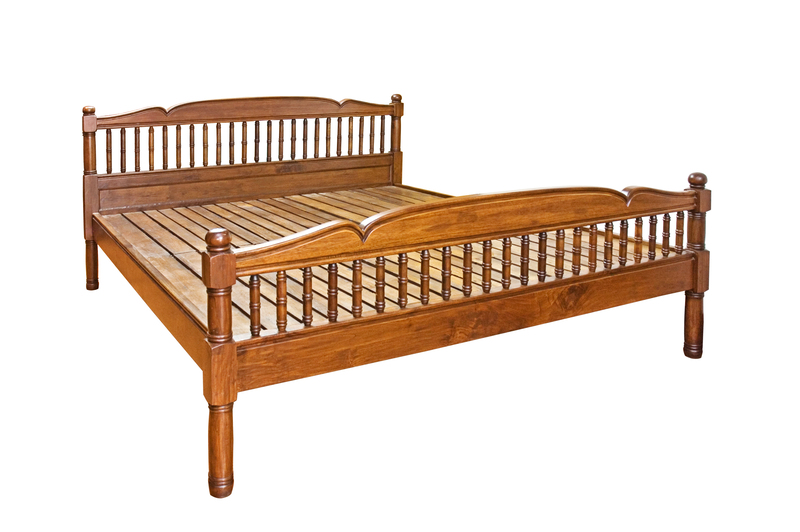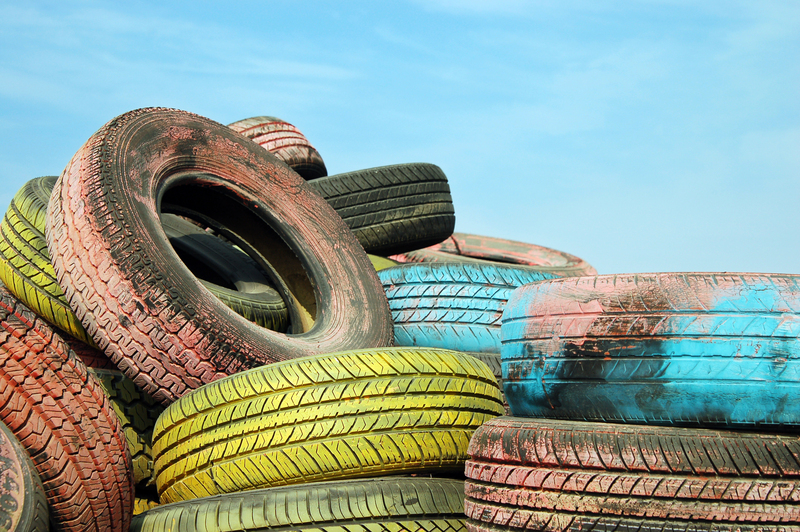How Households Can Save Money on Bulky Waste Disposal
When it comes to bulky waste disposal, many households feel overwhelmed by high costs and limited options. Whether you're renovating, moving house, or simply decluttering, disposing of large items like furniture, appliances, and mattresses can be both expensive and time-consuming. The good news is, with the right strategies and information, households can dramatically reduce their bulky waste disposal expenses, protect the environment, and even help others along the way.
Understanding Bulky Waste: What Qualifies and Why It Costs More
Before delving into saving techniques, it's crucial to understand what constitutes bulky waste. Typically, this includes:
- Old furniture (sofas, beds, wardrobes, tables)
- Large appliances (refrigerators, washing machines, ovens)
- Mattresses and bed bases
- Carpets and rugs
- Garden waste (tree branches, wooden fencing)
- Sporting equipment (exercise bikes, trampolines)
Bulky items are not only difficult to move but are expensive to dispose of due to their size, weight, and sometimes the need for specialized recycling. Most municipal garbage services will not collect bulky waste as part of regular pickup. Instead, they may charge extra fees or require residents to arrange their own solution.

Assessing Your Options: Where the Costs Lie
Several methods exist for disposing of bulky items, each with its own pricing structure:
- Municipal Bulk Collection: Many cities offer scheduled pickups for an extra fee or free, subject to limitations.
- Private Junk Removal Services: Professional companies handle everything for you but tend to charge the most.
- Skip Hire: Renting a skip is convenient for major clear-outs. Costs vary widely depending on size and location.
- Self-haul to Local Recycling Centers: Households bring bulky waste directly. This is often the cheapest option but requires transportation.
- Donation & Reuse Networks: Non-profits and online groups sometimes offer free pickups for reusable items.
*Understanding these choices is the first step in saving money. Next, let's look at proven methods to minimize the costs of bulk waste disposal.*
Money-Saving Tips for Bulky Waste Removal
1. Plan Ahead and Combine Items
Many municipalities offer a limited number of free bulky item collections per year or allow several items to be picked up at once for a single fee. Wait until you have several items to dispose of and coordinate their removal together to avoid paying multiple charges.
2. Utilize Local Recycling Centers
Most areas have local recycling centers or waste transfer stations where residents can deposit large items for little or no cost. If you have access to a vehicle or can borrow one, self-hauling your bulky waste can save significant money compared to hiring a collection service.
3. Donate or Sell Usable Items
One person's trash can be another's treasure! Many charities, second-hand shops, and online platforms will accept or even collect unwanted furniture or appliances that still work. Consider these approaches:
- Charity organizations: Contact local charities (e.g., Goodwill, Salvation Army, furniture banks).
- Online marketplaces: List items on Facebook Marketplace, Craigslist, Gumtree, or Freecycle.
- Community groups: Post in neighborhood forums or WhatsApp groups seeking to give items away.
These options not only save you money on disposal fees but also help those in need and keep usable goods out of landfills.
4. Repurpose or Upcycle Bulky Items
Before tossing out old items, get creative! Many bulky waste materials can be transformed into useful household goods or DIY projects. For example:
- Turn old wooden pallets or furniture into garden planters or storage units.
- Use mattress springs for unique wall art or supports in the garden.
- Convert drawers into shelves or toy boxes.
*Upcycling not only saves on waste disposal, but can also save money by reducing the need to buy new household goods.*
5. Find Shared or Group Disposal Services
If you and your neighbors all have bulky items to dispose of, consider pooling resources for even bigger savings. Many rubbish removal companies offer lower rates for larger loads. Organize a "neighborhood bulky waste day" where everyone shares the cost of hire or collection.
6. Check for Free Local Council Collections
Some councils offer free annual collections or discounted services for certain residents (such as seniors or those with low incomes). Visit your council's website or call their waste department to learn about available perks or programs.
7. Rent a Vehicle, Not a Skip
Skip hire can get expensive--and sometimes, you pay for unused space. Renting a van for a few hours and making a single trip to the recycling center may be both cheaper and more efficient, especially if you don't have enough waste to fill a skip. Factor in the cost of petrol, potential permit fees, and make sure you can safely load and transport the items.
8. Break Items Down to Save on Space and Fees
The bulk of disposal fees are based on volume or size. Disassemble large items like sofas, beds, or wardrobes before collection. This can:
- Enable you to fit more into one collection or trip.
- Reduce the minimum charges for private removals and skips.
- Make it easier to transport items yourself.
9. Delay Disposal Until Free Special Events
Check with your local council or recycling center for annual "free dump days" or community clean-up events, when households can dispose of bulky waste without charge. Time your big clear-out or renovation work to coincide with these events for maximum savings.
10. Compare Quotes and Negotiate
If you must use a private bulky waste removal service, get several quotes. Many companies will match competitors' prices or offer discounts for flexible scheduling (such as off-peak days). Never accept the first quote you receive--there is often room to negotiate!
The Environmental Benefits of Smart Bulky Waste Disposal
Saving money is just one benefit. Reducing, reusing, and recycling bulky waste lessens the environmental impact of your household. Here's how:
- Lesser landfill waste: Bulky items take years to decompose and can leak hazardous materials.
- Resource conservation: Repurposing and recycling conserves raw materials and energy.
- Reduced carbon emissions: Fewer pickups and less landfill waste mean lower overall greenhouse gas emissions.
*Environmentally friendly choices are often wallet-friendly, as recycling and donation are usually free or low-cost.*
Key Takeaways: Combine Methods for Optimum Savings
Saving money on bulky waste disposal doesn't have to be complicated or exhausting. With a little planning and creativity, households can:
- Leverage free community resources and council services.
- Sell, donate, or repurpose usable items rather than discarding them.
- Team up with neighbors for group collections and shared transportation.
- Break down bulky items to maximize space and minimize disposal fees.
- Actively compare and negotiate with private collection services.

Frequently Asked Questions About Bulky Waste Disposal Savings
Can I leave bulky waste on the curb for regular trash pickup?
Usually not. Most waste collection programs will not pick up large items during regular trash runs without a special appointment and fee. Check with your local council or waste company for specific collection days and rules.
What types of items do recycling centers accept for free bulky waste drop-off?
This varies by center, but commonly accepted items include furniture, appliances, wood, and certain metals. Hazardous materials, mattresses, and electronics may incur additional fees--always call ahead or check guidelines online.
Is it legal to leave large items out for someone to take?
Putting items ("fly-tipping") on the sidewalk or in public areas is often illegal and can result in fines. Use reputable reuse networks or charities instead for safe, legal, and cost-effective bulky waste disposal.
Conclusion: Saving Money and the Planet
Properly managing your home's bulky waste disposal can feel overwhelming, but with the strategies above, you can slash costs, reduce stress, and even give back to your community. Take advantage of local recycling programs, plan ahead for municipal pickups, and always consider donation and reuse as your first options. By making a commitment to smarter disposal methods, you'll not only save money but contribute to a cleaner and greener environment--now and for the future.
Remember: The cheapest and most sustainable bulky waste disposal starts with thoughtful planning and a little creativity!
